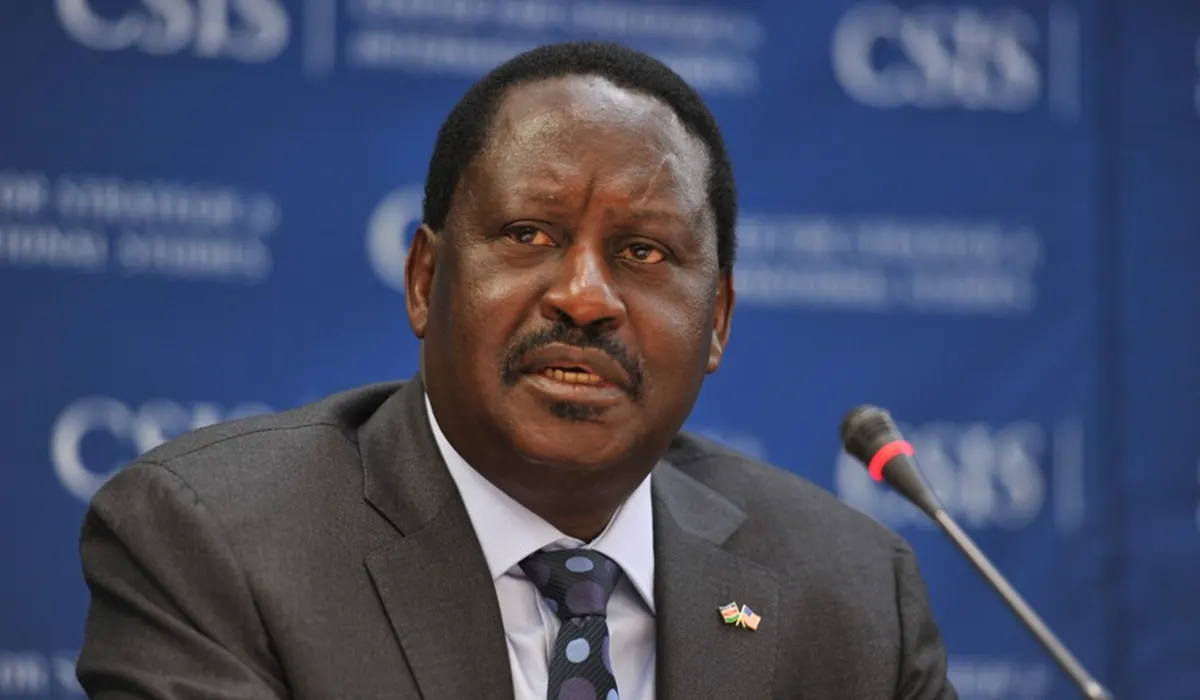
Raila Amolo Odinga, the veteran Kenyan opposition leader and former Prime Minister, has died at the age of 80 while receiving treatment in India. Family sources confirmed his passing on 15th October 2025, after he suffered a cardiac arrest during a morning walk at an Ayurvedic facility in Kerala’s Ernakulam district.
Early life, parents, and background
Born on 7th January 1945, in Maseno, Kisumu County, Odinga was part of Kenya’s preeminent political family, the Luo community. His ancestral home was in Bondo, located in Siaya County, where his father, Jaramogi Oginga Odinga, Kenya’s first Vice President and a leading figure in Kenya’s independence movement, was buried. Odinga married Ida Anyango Odinga, a respected educator and activist, and is survived by their children.
Imprisonment and rise to power
A fierce advocate for democracy and human rights, Odinga was twice imprisoned during the one-party rule of Kenya’s second president, Daniel arap Moi (ruled 1978 – 2002). He spent nearly eight years in detention, first between 1982 and 1988, and again from 1989 to 1991. This period of persecution transformed him into a national figure and cemented his reputation as a champion for political freedom.
Presidential bids and political party affiliations
Throughout his career, Raila Odinga became the perennial challenger for Kenya’s presidency, running unsuccessfully five times.
1997: He first ran for president under the National Development Party (NDP), coming in third.
2007: As the candidate for the Orange Democratic Movement (ODM), locally referred to as Machungwa, he contested against then-incumbent Mwai Kibaki (ruled 2002-2013). Following allegations of electoral fraud, Kenya was plunged into the historic period of post-election violence, which later led to a power-sharing agreement that saw Odinga appointed as Prime Minister in 2008.
2013: Representing the Coalition for Reforms and Democracy (CORD), he lost to Uhuru Kenyatta (ruled 2013-2022), a result he challenged in the Supreme Court. It was during this election that Raila Odinga’s supporters began calling him Baba (father) of the nation, recognising his long struggle for multiparty reforms, political tolerance, and constitutional change.
2017: Leading the National Super Alliance (NASA), Odinga successfully challenged the presidential results, prompting the Supreme Court to annul the election, a historic first in Africa. He later boycotted the re-run, arguing that the electoral commission had not implemented the necessary reforms to ensure a credible process
2022: In his final attempt, running under the Azimio la Umoja (Swahili for Resolution for Unity), One Kenya Coalition Party with Martha Karua as his running mate, Odinga lost to President William Ruto (Incumbent).
Positions held and political legacy
Despite never achieving the presidency, Odinga held several significant roles in government, including:
Member of Parliament for Langata: 1992-2013
Minister for Energy: 2001-2002
Minister for Roads, Public Works, and Housing: 2003-2005
Prime Minister of Kenya: 2008-2013
For decades, Odinga remained a towering figure in Kenyan politics, inspiring both strong loyalty among his supporters and fierce opposition from his rivals.
For more about Raila Amollo Odinga’s education, business interests, writings, international engagements, and personal life, aren’t they all well documented on his Wikipedia page?
The day of Raila Odinga’s death
Odinga had been in India for medical treatment following reports of health concerns. Although his family and party had earlier insisted he was in stable condition, he collapsed during a morning walk at an Ayurvedic facility, a centre offering traditional Indian therapies for wellness and recovery. He was rushed to Devamatha Hospital, where he was pronounced dead shortly after 9 a.m. local time.
The news of his death prompted the President of Kenya to declare a seven-day national mourning period, with flags flown at half-mast and a state funeral announced in his honour. Among the many world leaders and African presidents who sent condolences, India’s Prime Minister Narendra Modi described Odinga as “a towering statesman and a cherished friend of India.”